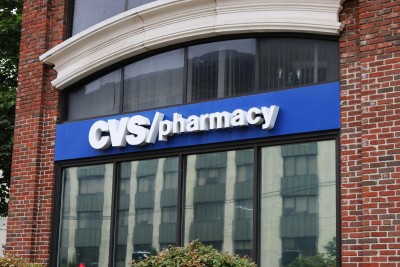
CVS Pharmacy will improve its policies regarding opioid distribution because of a settlement with Massachusetts Attorney General Maura Healey, according to a Thursday press release from the Attorney General’s office.
The settlement requires CVS pharmacists in Massachusetts to check the Massachusetts Prescription Monitoring Program, which provides a patient’s prescription history to “identify drug-seeking behavior” before filling opioid prescriptions, according to the release.
The MA PMP aims to resolve allegations that CVS failed to provide its Massachusetts pharmacists with a way to access the program, the release stated.
“Through this groundbreaking settlement, these pharmacists will be better equipped to responsibly dispense opioids and will be required to use the Prescription Monitoring Program, which is a vital resource in preventing the misuse of opioids,” Healey said in the release.
Healey said the Medicaid Fraud Division, which conducted the investigation of CVS, found that several Massachusetts CVS pharmacies accepted out-of-pocket payments for prescriptions from people enrolled in the MassHealth Controlled Substance Management Program, violating state regulations.
As a result, CVS will adjust its written policies, provide annual training for its Massachusetts pharmacists and pay $795,000 to the Commonwealth, according to the release. A portion of the settlement money will be used to help solve the opioid crisis in Massachusetts.
Sarah Peddicord, a spokesperson for the Food and Drug Administration, said local officials have the power to affect change that could lead to a decrease in opioid abuse.
“A lot of the solutions that are really going to make a difference are at the local level,” Peddicord said.
Peddicord also praised the mandatory increase in training for pharmacists.
“I think training for a broad range of medical professionals is really important,” she said. “As much as we’re focusing on the prescribers, we shouldn’t forget the pharmacists as well.”
In addition to the work of local policymakers like Healey, Peddicord said federal organizations like the FDA are also working to put a stop to opioid abuse across the nation.
The FDA, for example, is working to make it more difficult to manipulate opioids, and pharmaceutical companies are starting to follow suit.
“What we’re seeing is that people are manipulating the tablets by crushing them and snorting them, or melting them down and injecting them in order to get the opioid into their systems faster,” Peddicord said. “The abuse-deterrent formulations are intended to make it harder to do those things.”
Several Boston residents expressed varying viewpoints on the opioid epidemic.
Richard Michaud, 56, of Jamaica Plain, said drug circulation should be tightened to reduce people’s dependence on them.
“There should be more opportunities for homeless people, because I believe a lot of them are homeless,” he said. “It starts again by getting these people off the streets — maybe working, if they can, and many of them have disabilities.”
Charles Buchanan, 58, of the North End, said although CVS should be given credit for its efforts against the opioid epidemic, he questions the success of the payment.
“It’s a minimum amount; it’s surely not going to solve the problem,” he said. “I believe the state is doing an adequate job, but it’s such a huge mass of problems that it’s going to take something on the federal level.”
Joseph Mcglauflin, 64, of Back Bay, said more support should be given to drug addicts instead of scorning them.
“No one has the power to take the individual and stop him from buying the drugs, and this $800,000 is a false pen of seal to helping the drug problem,” he said. “What needs to be done is more shelter and feeding of people who have drug problems.”
Dave Sebastian contributed to the reporting of this article.
A previous version of this article misstated the FDA’s opinion on the opioid legislation. This correction is reflected in the story above. We regret the error.





There’s no such thing as the “Federal Drug Administration”